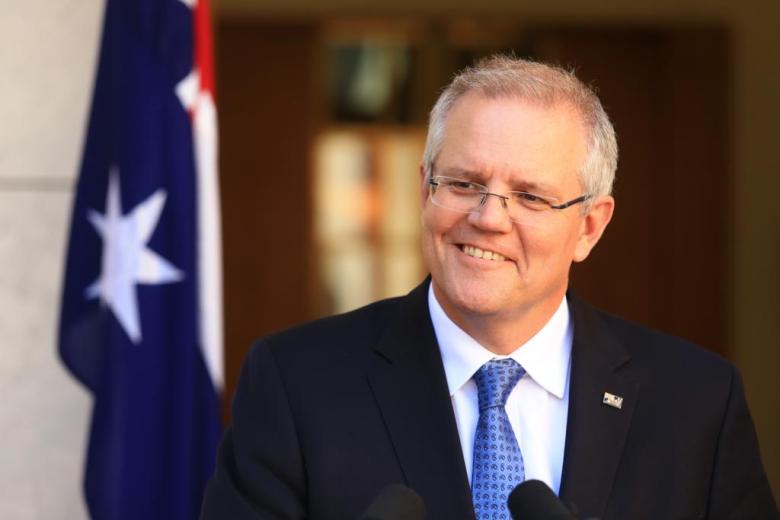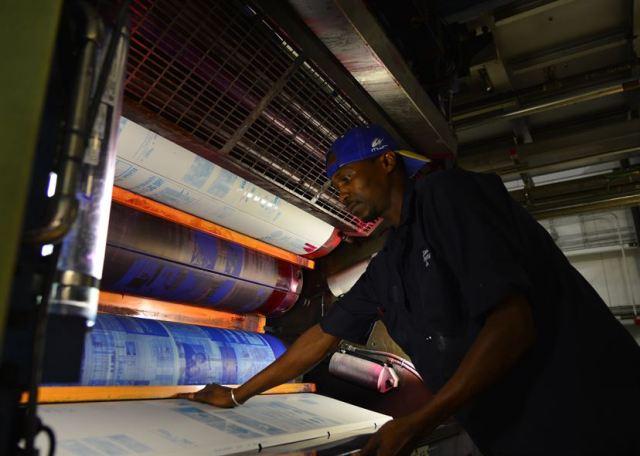
Prime Minister Scott Morrison has put key printing industry issues – industrial relations and skills – front and centre in his plan to get the economy out of intensive care through the planned JobMaker scheme in the wake of the coronavirus pandemic.
In making the announcement this week at the National Press Club, Morrison said creating a system that allowed business to flourish and productivity to increase was the only way to drive up employment and put the economy back in the black.
An overhaul of the industrial relations system, which he described as “not fit-for-purpose”, and removing the current outdated and “clunky” system that is used to determine skill shortages and replace it with a system that recognises the jobs and skills that are actually needed in a modern Australia is what was needed.
Morrison said the TAFE system and its variances between states also needed close examination, as this was resulting in students not taking the vocational education path.
“It is no wonder that when faced with this complexity, many potential students default to the university system, even if their career could be best enhanced through vocational education. I want those trade and skills jobs to be aspired to, not looked down upon or seen as a second best option, it is a first best option,” Morrison said.
“To address this challenge, we have embarked on a series of Skills Organisation Pilots they are designed to give industry the opportunity to shape the training system to be more responsive to their skills needs and take responsibility for qualification development.”
The Skills Pilots would cover human services, digital technologies and mining, he said.
Overhauling the complicated IR and skills systems are not easy, but if, as the PM wants, all parties – employers, industry groups, unions and government – come to the table and carve out an agenda for giving Australia a much needed recast, it could be very positive for all.
Federal Industrial Relations Minister Christian Porter has been charged with pulling together five working groups to set a roadmap for the future, by the end of September.
The groups will cover: award simplification, enterprise agreement making, casual and fixed term employee standards, compliance and enforcement and greenfield (new business) agreements. These are all big issues in the printing industry, with many companies struggling on a daily basis to resolve awards and skill level queries for staff.
“This process will be time-bound and is expected to run through to September. We must make the most of this time we have and we must move quickly. It will become apparent very quickly if progress is to be made,” Morrison said.
“The working groups will either reach something approaching a consensus on issues or they won’t. But we’ve got to give it a go. Participation in the groups is being invited without prejudice to their positions.
“Ultimately it will be through the Government that will take forward a job making agenda from this process.
“The purpose is simple and honest, to explore, and hopefully find, a pathway to sensible, long-lasting reform with just one goal – make jobs.”
The Print and Visual Communication Association and The Real Media Collective both welcomed the PM’s announcements and look forward to making contributions to these panel discussions in the hope that it will shape a brighter future for print, packaging and manufacturing in general.
PVCA CEO Andrew Macaulay said the current system had held back productivity for too long.
“You can’t really talk about industrial relations without talking about skills and vice versa, they are totally interrelated,” Macaulay told Sprinter.
“It is a really exciting announcement for print and packaging as the dialogue is driven by the need for us, as a nation, to dramatically improve productivity which means that a lot of sectors are going to have to be far more innovative than they have in the past.”
TRMC CEO Kellie Northwood said simplifying employment awards would go a long way to making business easier for many printers and she would be pushing for representation on one of the round-tables foreshadowed by Morrison.
“The awards are very difficult to understand and are so open to interpretation,” Northwood told Sprinter.
“These need to be tightened up so industry knows what it needs to do. Having dedicated teams of IR working in factories and print businesses is just unaffordable when manufacturing already has some of the leanest margins.
“Our industry needs to take a firmer position in regards to skills training, transitioning and apprentice programs that benefit our commercial print industry needs specifically.”
Macaulay said the PVCA would be represented in these round table discussions through its connection to the Australian Chamber of Commerce Industry (ACCI).
The PVCA would also benefit from its relationship with the Australian Manufacturing Workers Union (AMWU), he said.
“There is a good relationship in our industry between the unions, the AMWU, and the industrial association, which is us,” Macaulay said.
“We collaborate together extensively on the Reference Committee that drives the skills discussion so we are expecting to be very engaged in this process.”
Macaulay said this was a very exciting time for print and packaging.
“The print and packaging sector is really poised to take advantage of the commitment to overhaul the system because of the history of collaboration we have with the AMWU. This should then lead to more workplace flexibility which will give scope for employers to be more creative in how they create jobs and enhance productivity.”
Comment below to have your say on this story.
If you have a news story or tip-off, get in touch at editorial@sprinter.com.au.
Sign up to the Sprinter newsletter


